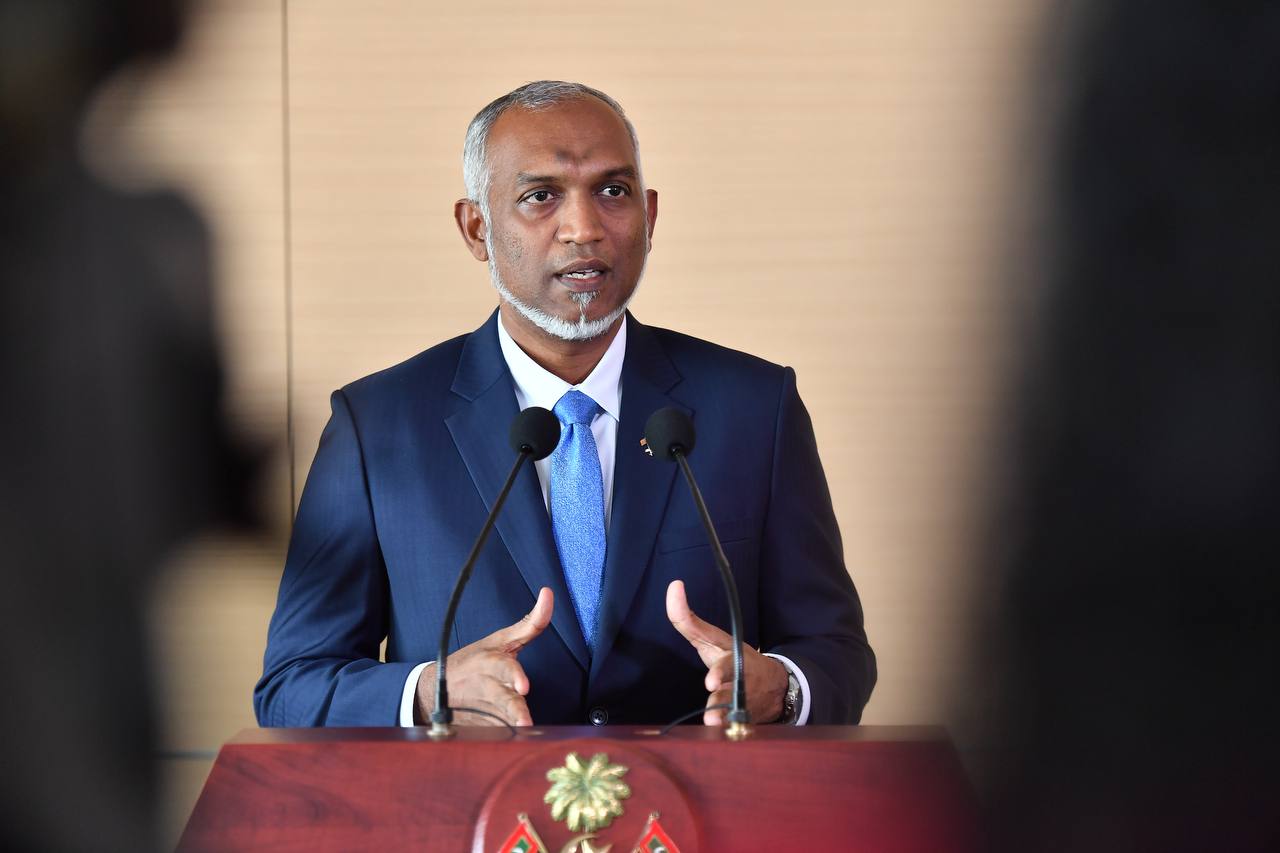In Muizzu’s Maldives, an economic crisis reinforced by China awaits
Maldives recently elected President Mohammad Muizzu’s rise to power has been one of disoriented interests and misjudged priorities. By hinging his electoral campaign on the ‘India Out’ movement, not only have the People’s National Congress (PNC) but also the party’s frontrunner Muizzu has ended up with more problems than their erstwhile counterparts. From the constant anti-India rhetoric coupled with deteriorating employment rates and economic turmoil, the political dispensation seems to be having their hands full in managing one crisis after the other. This crisis management was also reflected in the fact that the President himself had to go on record to state that no new development projects would be initiated due the economic burden upon its domestic economy. Moreover, the images of violence ensuing from the country’s Parliament during a session has further dented the Maldives global image. However, the onset of an economic rescission seems to be the crisis that President Muizzu’s party may not be prepared for.
In a recent interview, a prominent US diplomat stationed in South Asia revealed that Washington was pursuing Maldives to allow investments from both India and US to jointly take stalk of the Maldivian economy. A major reason that Washington was pursing Male was largely to prevent Maldives from facing similar situations as that of the other South Asian countries that had to go through severe economic distress given the enormous Chinese debt and other forms of finances they had undertaken. The fact that both India and US were willing to explore the possibility of pulling Maldives out of the oncoming economic recession speaks volumes of how dire the situation in the island country could get. However even more surprising is the lack of acknowledgement from the current Maldivian government, the fact that they choose to continue siding with Beijing reveals the extent of the influence China has over the current political party in power.
In 2020 alone, the Maldivian government went on to receive USD 196 million in loans, USD 29 million in grants and USD 56 million in aid from the IMF. Moreover, in 2023, the IMF had issued warnings to the government in Maldives, categorising it as a nation being of high risk for debt distress given its increasing closeness with China. This has however not deterred Male from seeking further finances from Beijing, more evidently prioritised during President Muizzu visit to China earlier this year. During the visit, an approximate of 20 agreements were signed including the announcement of elevating bilateral ties to a Comprehensive Strategic Cooperative Partnership. Among such agreements, deals to enhance the completion of projects under the BRI and other developmental projects were also signed showcasing Maldives re-orientation away from New Delhi to Beijing. However, by seeking greater tourist participation from China, not only is Male playing into Chinese hands, but is also falling into the same debt-trap that other countries in South Asia have faced for over decades.
This is also evident from the debt distress warnings prominent international organisations have issued against Maldives’s surge in loans from China. Maldives’s economy is heavily distressed with external debt amounting up to USD 4.038 billion with a similar figure also looming large in its internal debts. Of these figures, Beijing’s debt amounts up to USD 1.3 billion constituting an approximate of 30 per cent of Maldives total external debt at present. Furthermore, the China Development Bank, the Industrial and Commercial Bank of China, and the Export-Import Bank of China own over 60 per cent of Maldives’ sovereign debts as per some recent studies that were conducted to asses Male’s economic conditions. This trend however was also prevalent during the tenure of former president Abdulla Yameen, when the government borrowed heavily from China for developmental projects ultimately leading to economic distress, causing the Maldives to own 42% of its more than $3 billion foreign debt to China up until 2021, as per official figures from the World Bank. These figures are not only indicate the severe economic crisis in Maldives but also points towards how growing affinity with Beijing is ultimately going to harm Maldivian citizens interests. Studies conducted by the World Bank have also indicated that Maldives’ total debt was dangerously high at over 115% of its GDP, constituting it as a risky country to invest in altogether. These range of factors has nonetheless made Maldives a less favourable nation solely due to its over-reliance upon Beijing. The political leaders in the country must learn from the experiences of Pakistan, Sri Lanka and Bangladesh on how to best avoid Chinese detrimental aid and loans that have only led to economic turmoil given the high rates of interests that are hidden within such commitments. Maldives can however still prevent a Sri Lanka like situation if it re-directs its priorities in the right direction. However, given the state of its politics today, it is unlikely that Male’s decision will change. Thus, this makes it even more important for like minded partners like India and the U.S to support and provide necessary assistance to the people of Maldives in preparing them from the economic shock that would hit the country’s fragile economy. Only then will New Delhi as well as Washington be able to prove the need for having diverse set of partners for economic cooperation that ultimately aids the country’s development instead of pushing it into economic distresses.













